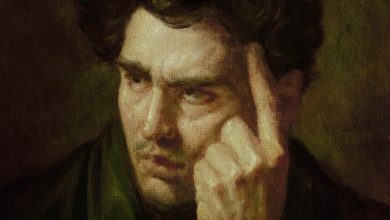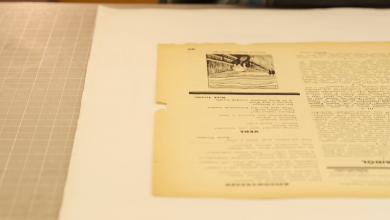Love or Hate Emmanuel Carrère’s Forceful Tangents, They’re Back in ‘Yoga’

YOGA
By Emmanuel Carrère
Translated from the French by John Lambert
335 pages. Farrar, Straus & Giroux. $28.
Emmanuel Carrère’s “Yoga” was released as a novel in France. Its American publisher’s website lists it under “Bios & Memoirs.” The Library of Congress calls it autobiography. On Amazon, “Yoga” is classed as both “Medical Fiction,” where it is currently the No. 248 best seller, and “Author Biographies,” where it sits at No. 340. If you’re new to Carrère and troubled by this taxonomical mayhem, the best advice is to dive in without worrying about where a bewildered librarian is going to file the book.
Carrère is more popular in France, where he’s published numerous best sellers, than in America, where he could probably spend a weekend lurking in a bookstore without being recognized. When “Yoga” came out in French, in 2020, it sold briskly and received nominations for literary prizes. It also caused a scandal.
The scandal was kindled, oddly enough, by the genre question. Following the book’s release, Carrère’s ex-wife, Hélène Devynck, revealed that the author had signed an unusual contract during the couple’s divorce proceedings. The document required Carrère to obtain Devynck’s consent for any appearances that she might make in his future publications. A battle over “Yoga” followed, with Devynck asserting that Carrère refused to fully honor the contract. She also condemned him for falsifying elements of the story. It’s absurd to accuse someone of falsifying fiction, but in the case of Carrère — whose fiction is occasionally presented as nonfiction, and often contains punishingly intimate details and real names drawn from his life — it is possible to understand Devynck’s objections.
“Yoga,” which is translated by John Lambert, begins with Carrère announcing his intention to write “an upbeat, subtle little book” engineered to “sell like hotcakes.” This hypothetical book would cover tai chi, Vipassana meditation, the difference between yin and yang, and other matters Carrère finds relevant to his yoga practice. He even picks out a title in advance (“Exhaling”) and composes copy for the back cover. But before he can complete this sunny masterpiece, a sequence of terrible events unfolds.
First, a murder. Midway through a 10-day meditation retreat, Carrère receives word that one of his friends has been killed in the 2015 terrorist attack on the offices of the magazine Charlie Hebdo. Next, a psychological meltdown. This stems from an event that Carrère refers to obliquely: “I do not give myself the right, nor do I feel the urge, to give the details of a crisis that is not the subject of this story.” Presumably the crisis is marriage-related, and the omission contract-related. He winds up spending four months in a psychiatric hospital, where he receives a diagnosis of bipolar disorder.
Carrère’s first impulse is to resist. “I protested, insisting that bipolar disorder is one of those notions that are all of a sudden in vogue and get pinned on anything and everything — much like gluten intolerance, which so many people discovered they suffered from as soon as people started talking about it.” After researching the illness, he quickly changes his mind and decides that “the shoe fits.” (Carrère once wrote in an essay that he is not afraid of clichés, which is accurate.)
Having accepted the bipolar label, he begins to review his life through clinical glasses. Old memories become “episodes”; the time he rented a spiffy apartment and bought a new Bluetooth speaker now looks like a manic spiral rather than garden-variety happiness.
Like Joan Didion before him, Carrère quotes from his own psychiatric evaluation, which characterizes him as having a “sad expression” and “significant moral suffering.” At the hospital he requests euthanasia. Instead, doctors treat him with ketamine and electroconvulsive therapy, with mixed results. He accepts a magazine assignment that requires traveling to Baghdad because, he figures, it will increase his likelihood of being obliterated in a car bombing.
There’s a lot more plot, but it’s unimportant. The gist is that Carrère’s life gets very bad and then slightly better. “Yoga” is an assembly of messy and forceful tangents — not his best book, but a fascinating amplification of all the qualities that cause some readers to love Carrère and others to find him intolerable.
As the contract with Devynck indicates, Carrère’s work revolves around a practice of extreme — deranged, even — candor. In “Yoga” he writes about meditating while drunk, kneading and squeezing a lover’s breasts, and not visiting his parents often enough. He describes his method of sitting on a cushion, which involves grabbing and spreading his buttocks before landing to distribute the pelvic muscles in a specific way. He calls himself pretentious, lame, narcissistic, unstable and many other cruel adjectives. Does Carrère have complete or minimal control over his torrential disclosures? And if they are riveting, as most of them are, does it matter?
Then there is his self-obsession — always pronounced, and in “Yoga” untrammeled. And his conversational prose style, which can impart the treacherous delusion that you, reader, might also become a famous novelist if you simply typed up 100 percent of your internal monologue and hit spell-check. Or his habit of issuing serene and peculiar generalizations, such as: “The Indians love lists.”
He is both intentionally and unintentionally funny. Often it’s hard to tell the difference. “You can meditate for two hours on your nostrils without getting bored,” he writes. “This session is off to a good start: my nostrils are my best friends.” Or, on the topic of psychoanalysis: “I’ve spent almost 20 years on couches without any noticeable results.”
Either you’re charmed and entranced by this tone of thought or you’re repelled; it’s tough to imagine a reader who occupies the middle ground. I would gladly read a hundred pages of Carrère scrutinizing the “huge caverns” of his nostrils, lingering on the way that air prickles and tingles against their walls — but I understand why somebody else wouldn’t want a single paragraph of it. He is the opposite of an acquired taste. If you don’t like Carrère now, you never will. “Yoga” is an effective way to find out.




